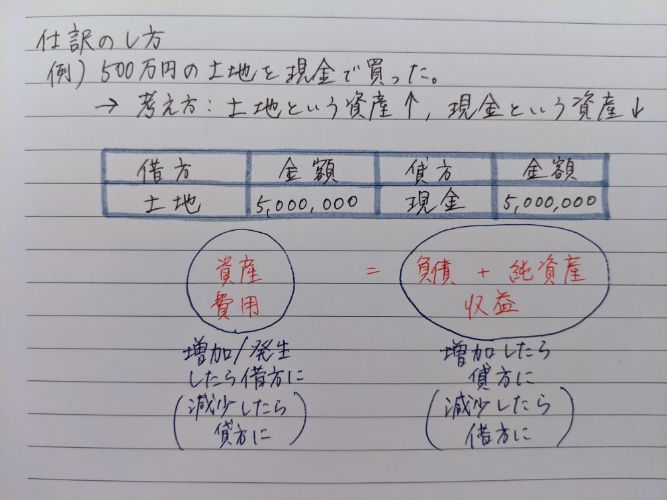-
Reading note
Here is a summary of Step 1-5 in Part 1 of ホントにゼロからの簿記3級.
★Key points
最初に覚えるべき5つの概念、そしてその覚え方:『資産=負債+純資産、そしてあとは費用と収益』

★簿記単語帳 Glossary of bookkeeping
日本語 English 複式簿記 double-entry bookkeeping system 単式簿記 single-entry bookkeeping system 借方(かりがた) debit 貸方(かしがた) credit 資産 assets 負債 liabilities 純資産 net assets 費用 expenses 収益 revenue 仕訳 (a) journal entry 仕訳帳 (general) journals 貸借対照表 balance sheet (B/S) 損益計算書 profit and loss statement (P/L) Categories:
-
We had a chat with the Kuroses and Takeshi kindly gave some practical advice on where to start in our journey to our own brewery. He said there are briefly two aspects to consider when starting a business: procedural and strategical.
- Procedural aspect
- Check out the village office (村役場) to see what kind of support they can provide e.g. grants.
- Check out the local chamber of commerce (商工会議所). They often hold seminars for members and give practical advice on how to write a business plan.
- If you will need financial supports, consider Japan Finance Cooperation (日本政策金融公庫) and Shinkin Bank (信用金庫) who offer lower interest rates for startups than local banks.
- For a small business that is based in a small community, there is probably no need of an ‘ambitious’ business plan. Rather, you may want to learn about basics of marketing. There are many free tools available on the internet that help you visualise your business (search for ‘business model campus’). You may also teach yourself basics of accounting. Freee is a free accounting software.
Thoughts:
- I found the Hidaka Village Society of Commerce and Industry.
- Also ask Shunpei about it as I remember he mentioned it several times.
- As for grants, financial supports and accounting skills, ask my mum. For accounting, it may be a good idea to buy a book or two on Kindle.
Categories: